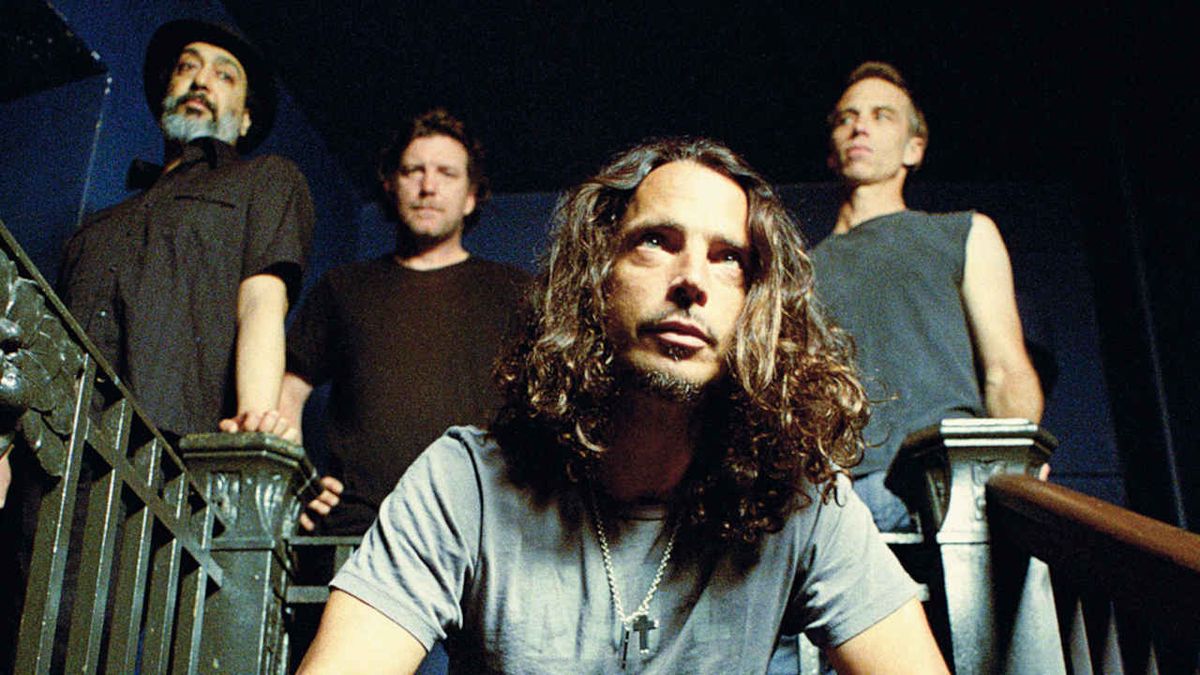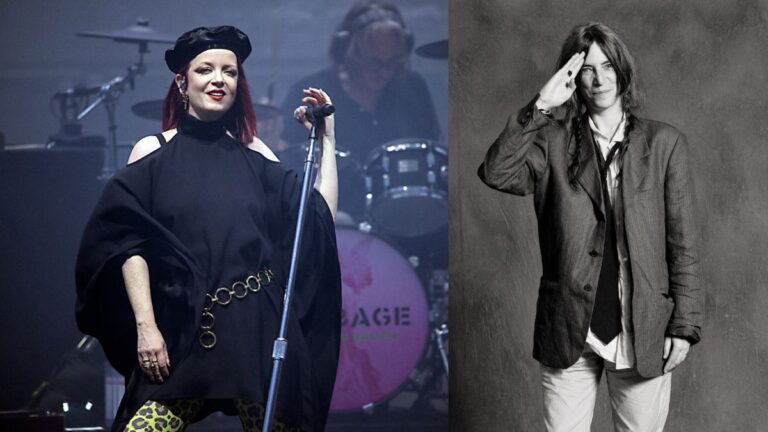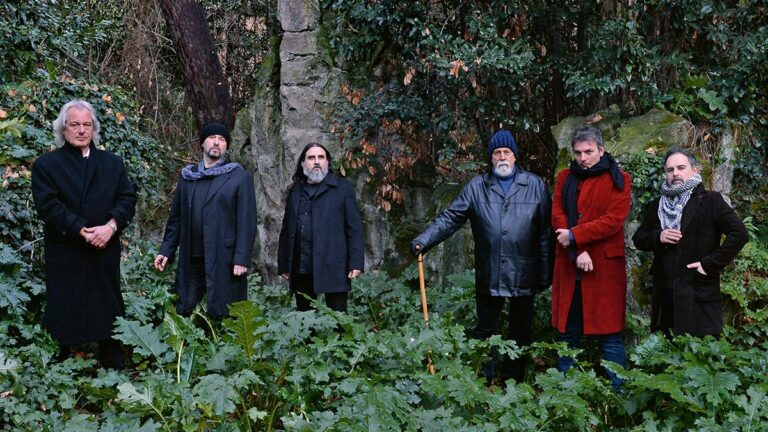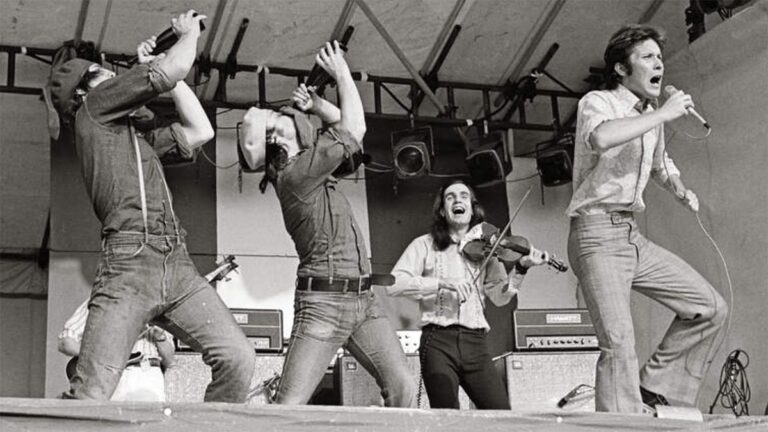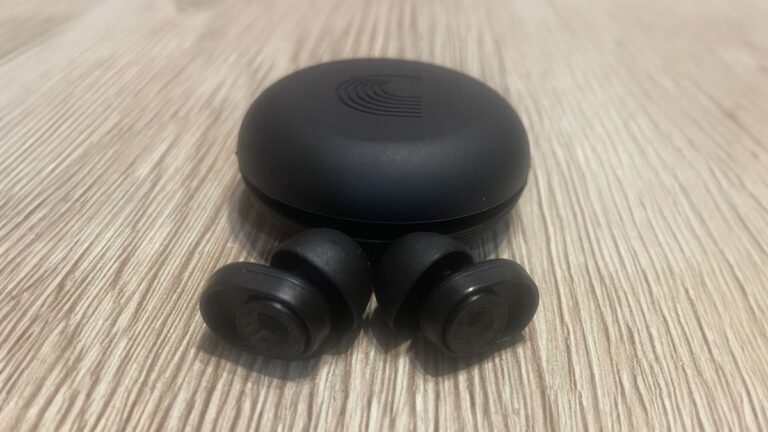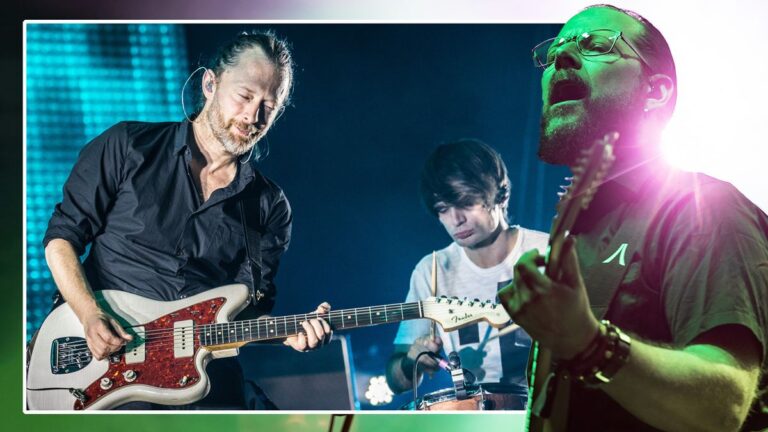From Corporate Sell-Outs to Rock Legends: The Inspirational Journey of Soundgarden
Soundgarden’s reunion in 2010 and subsequent comeback album King Animal two years later marked the return of one of the most successful and influential bands of the last 30 years. In 2014, guitarist Kim Thayil sat down with Metal Hammer to look back over the Seattle band’s rollercoaster career.
“Our music was not as digestible as Pearl Jam’s, nor as easy conceptually as Nirvana’s. You could listen to those bands at a club and dance around and feel like you were having a visceral experience with beautiful music. You couldn’t do that with us. You put Soundgarden on when you want people to leave your house: ‘Here’s Badmotorfinger. Go home now.’”
Kim Thayil has a voice as slow and deep as continental drift. When Soundgarden’s guitarist talks about his band, his music and occasionally himself, it’s with a steamrolling and near-hypnotic deliberation. He talks it like he plays it: articulate, dense, freighted with intelligence and often going against the grain of expectation. His speech mirrors the music he’s made on and off and now on again with the band he co-founded 30 years ago. Soundgarden were always a fraction out of step with their Seattle contemporaries: less shiny than Nirvana, more twisted than Alice In Chains, gloomier than Pearl Jam. And, thanks in large to Kim and his cement-clad guitar sound, heavier than the lot of ’em.
“Could you imagine people partying to Soundgarden music?” he says. “It is a very personal music, it’s something to share between close people. But it’s not really a social music.”
If Kim sounds like a philosophy graduate, it’s because that’s precisely what he once was. That was at the dawn of the 1980s, when he drove 2,700 miles from his native Chicago to Seattle, the place he still calls home today, to attend the University of Washington.
The son of Indian immigrants, the young Kim immersed himself in the very best American rock’n’roll had to offer: Aerosmith, Kiss, Ted Nugent, Cheap Trick (“But not Journey. I never had a Journey record.”) By the time he left for Seattle, he had graduated to punk, post-punk and hardcore: The Stooges, The Ramones, Black Flag and Chrome.
“I had a head full of rock’n’roll dreams when I started learning how to play guitar,” he remembers. “But they quickly dissipate when you finish high school, go off to university, get a job. I wasn’t a wealthy, leisure-class kid. I didn’t grow up to rich parents in Manhattan.”
Making a living from music was low on the Thayil to-do list. At least it was until he met Chris Cornell and original bassist Hiro Yamamoto and formed Soundgarden in 1984. “It became one of my two great loves, but it still had to take a back seat to my other responsibilities at the time.”
Soundgarden’s importance in the development of the Seattle scene is sometimes overlooked. While they weren’t the only local band twisting punk, metal and hard rock into new shapes in the mid-80s, they become one of the biggest in their hometown. The guitarist himself can take the credit for pushing together Bruce Pavitt and Jonathan Poneman, the founders of Sub Pop and the architects of what would become the grunge scene. And with their second album, 1989’s Louder Than Love, Soundgarden became the first of their contemporaries to release an album on a major label.
“We were shouldering the success of that scene as well as some of the criticism,” says Kim. “Some of our peers thought, ‘Are they going to be corporate sell-outs?’ I don’t know if it was a combination of jealousy or resentment or a feeling of betrayal.”
Ironically, the band who helped lay the groundwork would soon be eclipsed by some of the bands they had inspired. 1991’s supremely warped Badmotorfinger went platinum in the wake of the success of Nirvana and Pearl Jam, but it wasn’t until 1994’s more overtly commercial Superunknown that they truly planted their size 11s in the mainstream consciousness.
“Was there any jealousy that these other bands were overtaking us? Yeah, sure,” he says, before qualifying it. “A little. But we kept things in perspective. We weren’t schoolboys about it. We knew the people in Pearl Jam from when they were [proto-grunge band] Green River. And Nirvana, who were these kids who would come to our shows.”
The band’s steady rise meant that they were, as the guitarist puts it, “equipped for the world we entered”. But even as the sales and magazine covers mounted up, he remained an enigmatic presence as the spotlight inevitably shifted towards the more photogenic Cornell. A twinge of jealousy on the part of the guitarist would be understandable. Though in this instance, it would also be wrong.
“There was not an issue around the attention given to Chris. You may feel one thing emotionally, but intellectually you put things into perspective. If you’re not intellectually prepared for the fact that the singer is the one who gets all the attention, you may as well not do it. Especially when I contrast it to what was happening in the Nirvana and Pearl Jam camps. There was so much attention being put on Kurt Cobain, it was ridiculous.”
Soundgarden suffered no great commercial decline in the three years between Superunknown and its underrated follow-up, 1997’s self-produced Down On The Upside. But something had shifted internally. One of many issues was that Chris Cornell wanted to open out the band’s sound, while the guitarist preferred to keep the band’s heavy core intact.
“Did I ever feel marginalised?” he says. “Towards the end, yes. The process of making Down On The Upside was very uncollaborative and frustrating. We were least like a band during that record.”
Soundgarden officially ground to a halt on April 9, 1997. The news broke via a brief fax that stated: “After 12 years, the members of Soundgarden have amicably and mutually decided to disband to pursue other interests.”
So far, so clichéd. But what happened next was more fascinating. Where his ex-bandmates really did “pursue” said “interests”, Kim simply disappeared. One minute he was here, the next – pfft – he’d vanished. And he pretty much stayed vanished for the next 14 years.
“I wasn’t aware of that,” he says, after a moment’s thought. “More time had transpired than I had paid attention to. I don’t really have a good answer for what I was doing. I was having a great time reading and playing the guitar recreationally and hanging out with my friends. I’ve always been interested in politics and philosophy, and after September 11 happened, I was even thinking about going back to school and getting a Masters in philosophy. Of course I couldn’t motivate myself to do that either.”
He didn’t quite go down the full JD Salinger route: he played on Dave Grohl’s metal fanboy side-project Probot, SunnO))) and Boris’s 2006 collaboration Altar, a track by Southern Lord doom experimentalists Ascend and, most notably, teamed up with Krist Novoselic and Jello Biafra in the politically charged No WTO Combo. “I was always doing things,” he recalls.
He says that he stayed in touch with the other band members during this period. Was there a part of him that was missing Soundgarden?
“No, there wasn’t,” he says with some conviction. “I’m still not missing Soundgarden. When the band broke up, I was bummed out for a few months, but it went away. I did not feel, ‘Gee, if only we were back together again.’ And I still don’t feel that way. I’m glad we’re back together again, but I do not need it. People should enjoy company of other people, not feel like they need it.”
Whatever the imperative, Soundgarden are back together on an apparently permanent basis. Their comeback album, 2012’s King Animal, was fit to stand with anything they released during the 80s and 90s. So little changed in the intervening 14 years that you’d be forgiven for thinking that the hiatus never happened.
Though not quite everything is as it was. Chris Cornell recently said that the main difference between Soundgarden in 1998 and Soundgarden in 2014 is the absence of alcohol. “That’s not true!” says Kim, his voice rising. “When we were younger, I used to drink one or two beers just before we went on, just to relax. I don’t do that any more. I usually have my first beer at the end of the set, just before the encore.” A pause for comic effect. “And then the other 28 after the show!”
These days, he only drinks alcohol on show days. “Or when I go to some social event with friends. Which I don’t do that often.”
It’s in moments like this when you glimpse the other side of Kim: insular, anti-social, spiky. The sort of person who describes people who liked wrestling in the 80s and 90s as “knuckleheads and goofballs”. The sort of person who loves punk rock and underground metal simply because it exists – and who still gets excited by it.
“When I was a teenager, there were a hundred metal bands,” he says. “Now there’s hundreds of thousands all over the world. There are as many punk rock bands. There’s not less rock’n’roll. There’s more rock’n’roll. It can only be a good thing.”
Originally published in Metal Hammer 258

